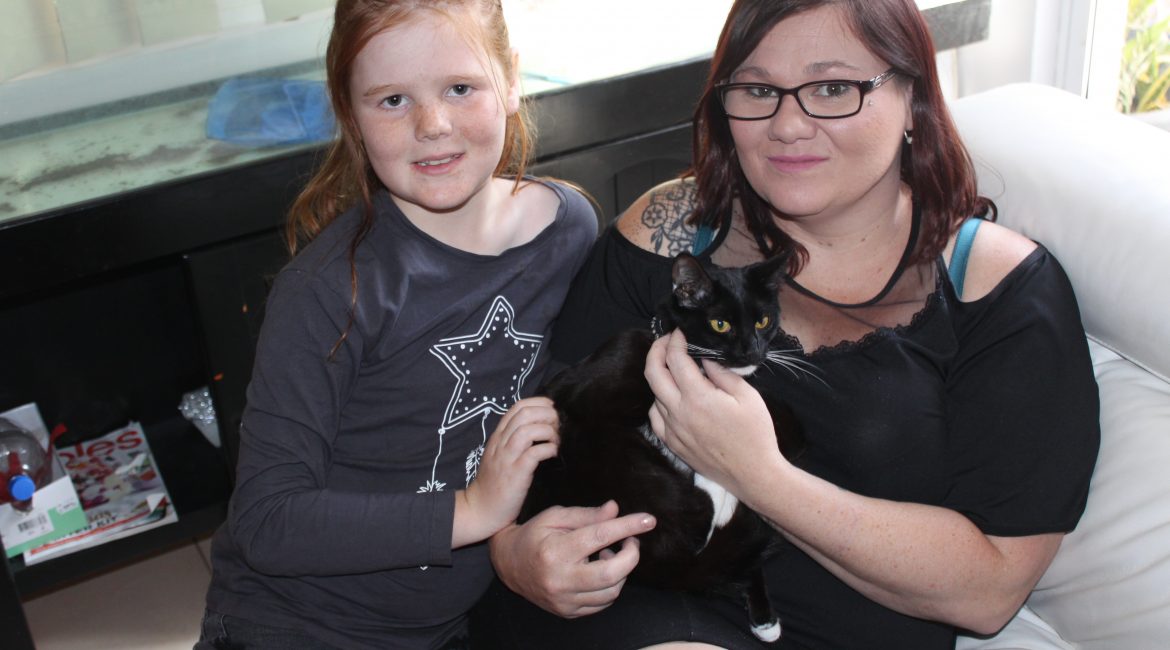While being locked in a cupboard by her abusive ex-husband and hearing the banging, shouting and the crashing, Mandy began to think about her life, her family and her choices. As the minutes ticked into hours, Mandy who could not have been more alone at the time, would miss a phone call from her daughter Addison’s school, querying where she was. As she had endless time to think, she began to reflect.
“I couldn’t pick her up from school, because he locked me in the cupboard. I was at the point where I couldn’t protect myself or Addison.”
Mandy
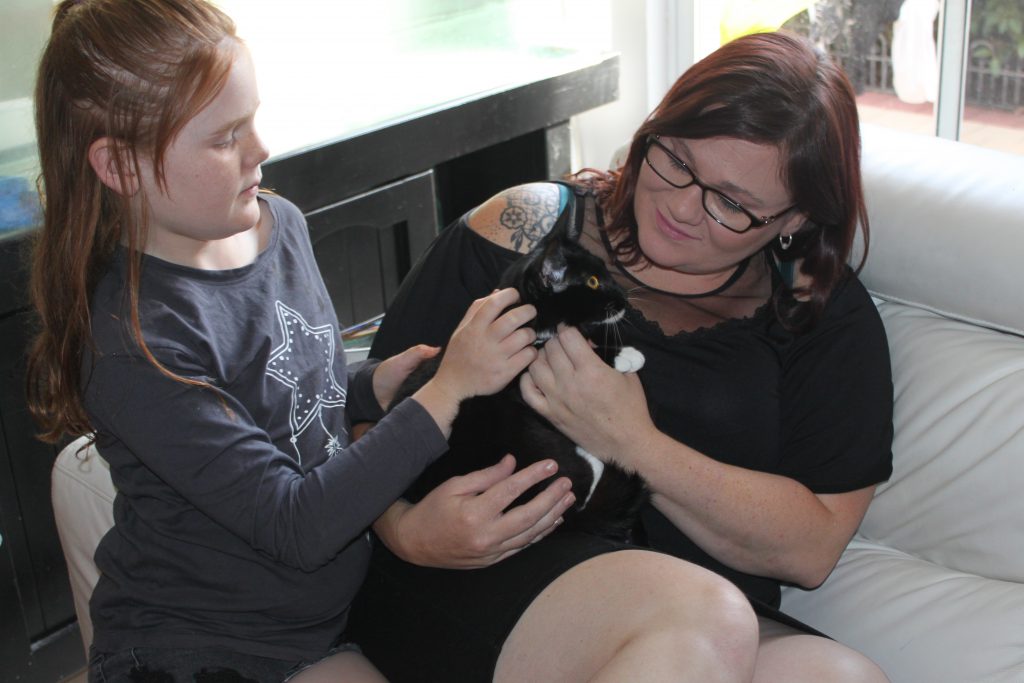
No stranger to her husband’s abuse, Mandy said in the first instance her children witnessed the abuse, she had experienced it at least 60 times before that moment. I asked her what had changed for her in that instant.
“When my husband beat me up in front of the kids and was punching me in the head on the bed, seeing my kids faces and how upset they were, it suddenly felt real. Up until then, it was okay for all this to happen to me, I could take it, but when my kids were there to see it, my mother instincts kicked in and I knew we had to leave,” she said.
Mandy said she knew she had to do whatever was necessary to protect her three children, Mikayla 14, Blake 12, and Addison 9.
Whilst staying at about 15 refuges, she didn’t see the children at all because it wasn’t safe for them. Mandy didn’t see kids on a regular basis until she was linked to a refuge outreach program and started getting food, housing, mental health, legal and alcohol and other drugs (AOD) support.
Intersecting issues
For Mandy, the battle with mental health issues, addiction and homeless were key factors that hindered her ability to regain control in her life. For domestic violence victims like Mandy, it’s important to remember that no two stories are alike.
After spending three weeks on the street, living in the City, walking around and trying to find a safe place to sleep, Mandy said she finally saw things clearly.
“It was really traumatic for me to be walking around and seeing everybody that was homeless and so messed up. I realised I don’t want this for my family,” she said.
“I knew at that point, if I didn’t fix my life, I would be dead – I would be gone. I went back to the refuge and I knew I didn’t want drugs anymore – I wanted to be with my kids.”
Mandy
Mandy went to rehab and began to work hard in an attempt to get clean from her alcohol and drug addictions.
Admittedly, she said she still had a lot of bad days and struggled every day with PTSD and mental health issues, but she was trying her best.
“I wasn’t just a DV victim – there were other issues and I came to realise it was a whole lifestyle choice and I needed to change,” she said.
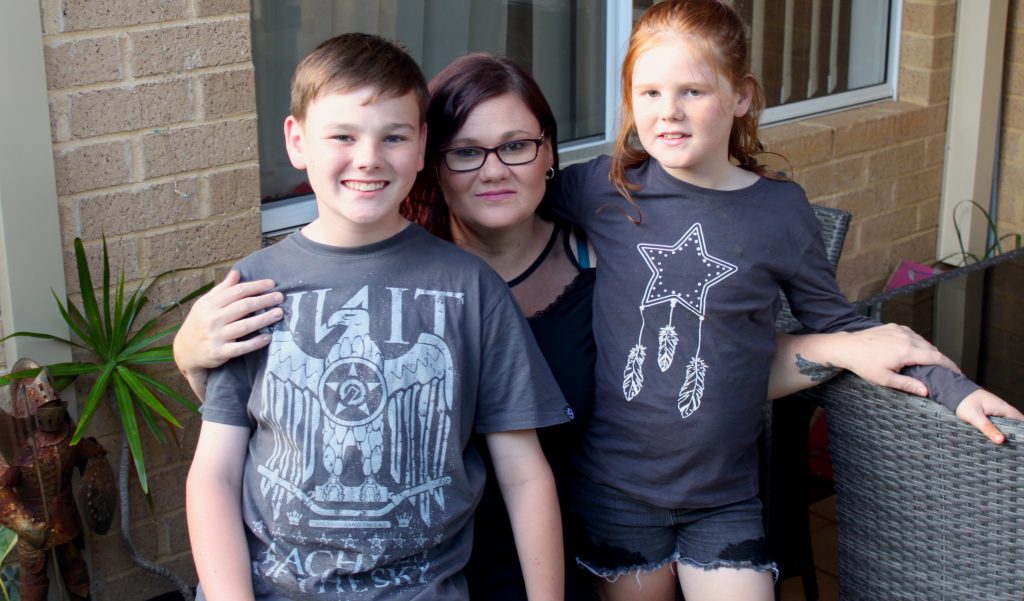
“At the end of my violent relationship I had an addiction and now I’m clean – and that is something to celebrate.”
A refuge for safety and support
After navigating the difficult space of DV, mental health and AOD services, Mandy connected with Anne, a support worker from Orana House refuge, who took her on as an outreach client. With a troubled past, the live-in situation didn’t suit Mandy’s needs, so Anne recognised she had the capacity and ability to do the work, but she just needed the support in an external setting. She had been actively engaged in the Outreach program for more than a year and still remains connected. Anne and Stephanie were her support workers. Through this support, Mandy said her life began to change.
“Anne helped support me from the beginning of my journey and carried on the support through the SWitCH (Supporting Women in the Community Holistically) program. There were many areas that I was supported through. I worked hard to have my kids with me and the steps I took were to make sure I could have a safe home set up for them,” she said.
Mandy said she received Coles vouchers each week, and without that support the family would not be able to eat.
“They linked my children in with programs for my kids to attend: days out at the pools, things I can’t afford as a single mum, Christmas parties for me and my children, food hampers for Christmas and presents,” she said.
“These are things that make you cry; you’ve never in your life had to ask for help, but all this makes you so grateful to see the smile on your children’s faces. Because they also have nothing and starting over is hard.”
Mandy
“I remember the days of struggle, the staff calling me, supporting me on my down days, when my PTSD and mental health were so bad, I couldn’t cope or get out of bed. They have helped pick up my broken pieces and put them back piece by piece.”
“The support they have offered and given me has made me so very grateful and full of gratitude without their help I would still be fighting for myself and for my children.”
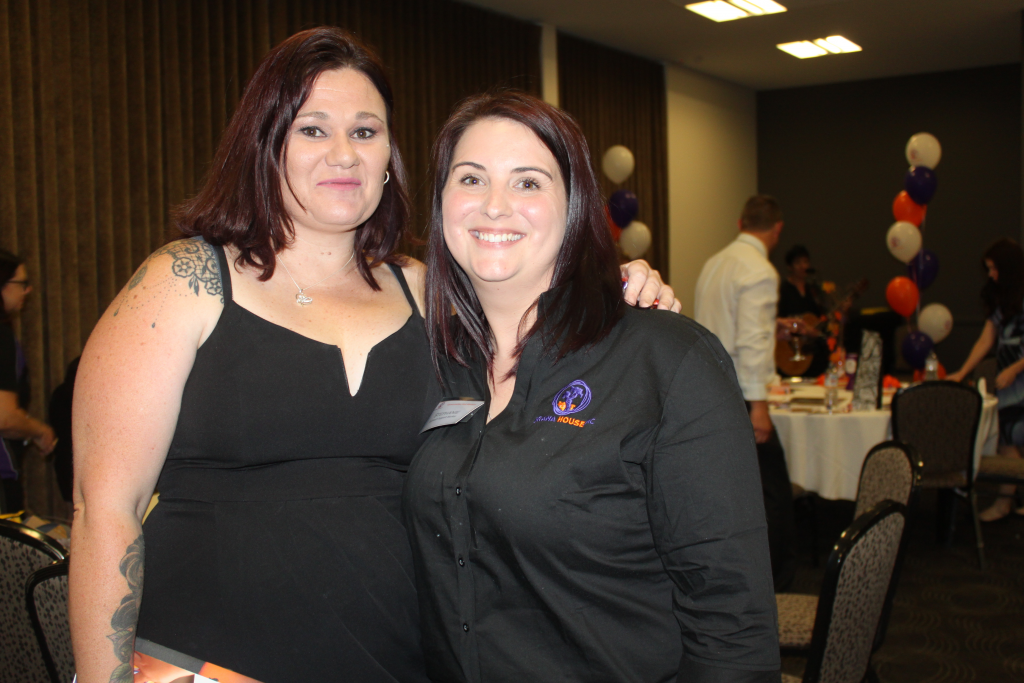
Mandy’s support worker Steph said the hardest part about this case was connecting with other agencies to help support her client with all the other issues separate from DV.
“There is such a high need for community/ongoing support, but the capacity that we and other agencies have limits the assistance and time the women can receive help for,” Steph said.
“It’s really tough, feeling as though you are making a small change but knowing that we could do more by reaching further into the community through schools and education, to help understand and break ongoing cycles of DV.”
Having external outreach care, Steph said that Mandy’s needs matched this in a more holistic way.
“To know that the support and advocacy we provide to the women and children who come through our refuge, can also be provided to the women in need out in the community makes me feel as though we can make a much-needed change,” she said.
Stephanie – Orana Support Worker
“Mandy has worked so hard and continues to. She has had goals in place and reached them, like having her children with her. Her strength and resilience amaze me. To know that she wants more for herself and her kids, and for her to know she can achieve that, shows how much she has grown.”
“She is a strong woman who can overcome her past to build an amazing and positive future for herself and her family.
Reflecting on the future
Healthy relationships are now important to Mandy and she tries to model that with her children.
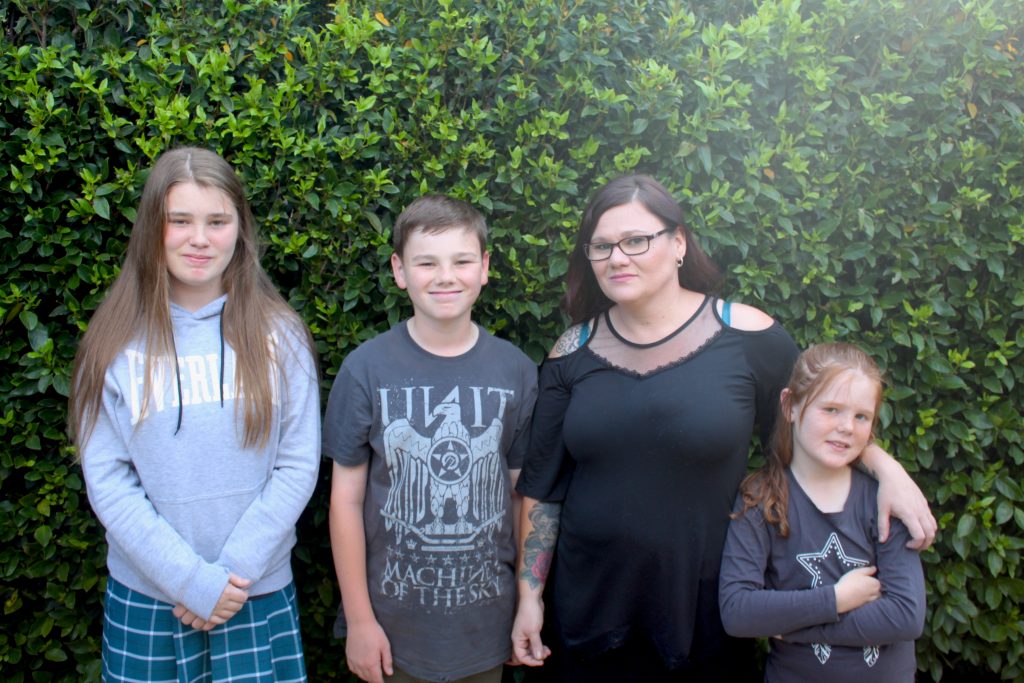
“The kids and I are all learning together about what a healthy relationship looks like,” she said.
Now back with their mother, the children are doing better in themselves and Mandy said they don’t have to walk on eggshells so much.
Blake said they were feeling happy again.
“We are with our Mum now, and we are all happy to have our family back together.”
Blake
Mandy said she was finally feeling good about Christmas and all the little things that go with it.
“I’m so excited about giving the kids a special Christmas. Just being able to wake up with the kids on Christmas morning and have a lovely simple breakfast with the family will be perfect,” she said.
As Mandy moves into the future, she has gained a lot of insight and wants to tell her story to help other women and families at risk.
“No-one could fix me but me. I needed to fix myself for my kids. I couldn’t stop my ex from drinking or being a drug addict. It wasn’t my fault he cheated on me or hit me.”
“If I could say one thing to other women in this situation it would be: the violence is never your fault, never blame yourself and never think you’re not good enough.”
Mandy said she needed to rise above it all to support her children, and even though she still had dark days with her mental health and PTSD, she was trying to love herself again.
“It’s really hard for women to leave, because your whole home is there and there’s nowhere you can go. Then it happens again – they beat you, so you may only have a backpack of clothes, but you can’t stay. The long, hard road ahead is scary, but what your life will look like if you stay, is far worse,” she said.
“To walk away from a domestic violent relationship, to walk away with nothing but yourself is one of the hardest things I have ever had to do.”
Mandy
“Finally, the days have passed, and I can look around at my home and my children and realise ‘wow, I have made it’. I have my kids, our home, a car, and the court battle is over. I don’t need anything; I have everything I have fought for. In just under two years of fighting for my life, I AM FREE, my kids and myself are safe.”
Find more information about Orana House’s Outreach program here or follow them on Facebook.
Words by Jacqui O’Leary
If you or anyone you know needs help contact:
- Lifeline on 13 11 14
- Women’s Domestic Violence Line on 9223 1188 or 1800 007 339 (country)
- Men’s Domestic Violence Line on 9223 1199 or 1800 000 599
- Crisis Care on 9223 1111
- 1800 Respect on 1800 737 732
- Kids Helpline on 1800 551 800
- MensLine Australia on 1300 789 978
- Suicide Call Back Service on 1300 659 467
- Beyond Blue on 1300 22 46 36
- Headspace on 1800 650 890
